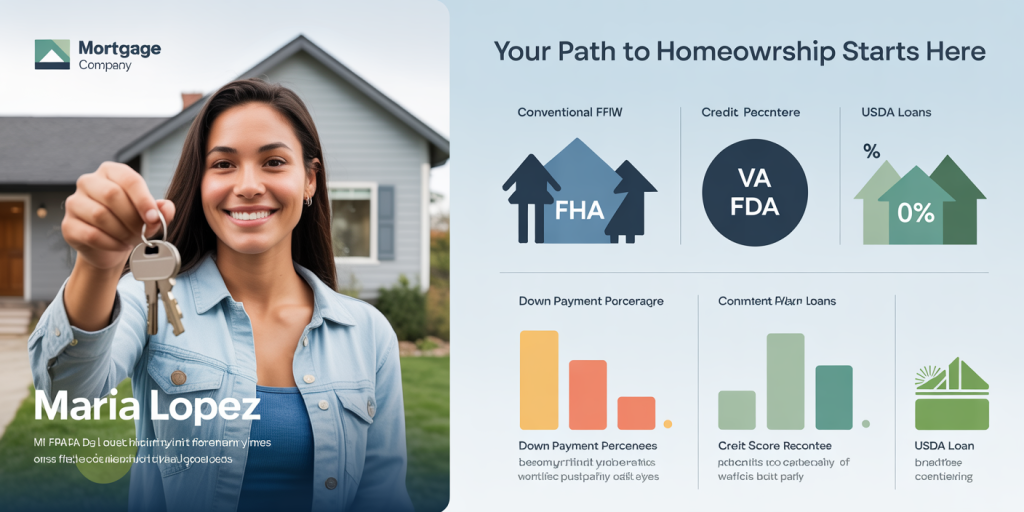Purchasing a home for the first time is a monumental step—one that blends excitement with numerous challenges. As dreamers set out on this journey, it’s easy to feel overwhelmed by the jargon, financial considerations, and procedural complexities. Understanding the essentials before diving in can streamline the process and help avoid costly mistakes. In 2023, data from the National Association of Realtors revealed that 31% of homebuyers were first-timers, indicating that the market remains ripe for new entrants armed with the right knowledge.
This article unpacks crucial information first-time homebuyers should be aware of, from financial preparation to choosing suitable properties, understanding mortgage options, and navigating closing. Real-world examples and practical guidance will illuminate the path, making homeownership more achievable and less daunting.
Why Financial Readiness Is Key in Buying Your First Home
A clear financial foundation is arguably the most important factor when purchasing your first home. While many prospective buyers focus on the look and location of a property, neglecting finances can lead to painful setbacks. One of the first financial steps is to assess your savings to cover the down payment, closing costs, and unexpected expenses. According to a 2022 survey by Bankrate, the average down payment for first-time buyers is approximately 6%, which translates to $18,000 on a $300,000 home. However, this figure varies widely based on loan type and lender requirements.

Practical budgeting is essential. For instance, consider Sarah and James from Austin, Texas, who initially underestimated their closing costs that included appraisal, inspection fees, and title insurance. They budgeted only for the down payment but ended up delaying closing by two weeks, scrambling to gather an additional $5,000. Their experience underscores the importance of building a financial buffer beyond the headline figures.
Moreover, your credit score plays a monumental role. In 2023, the average credit score of first-time buyers was 716, according to Experian. A higher credit score usually leads to better mortgage rates and loan options. For example, a difference of 50 points could save you thousands of dollars in interest over a 30-year term. First-time buyers should obtain their credit report early, dispute any errors, and work toward improving their score if necessary before applying for loans.
Types of Mortgages: Choosing the Best Fit
Once financial preparedness is established, understanding mortgage options is the next hurdle. Mortgages come in many flavors, each tailored to different needs and financial circumstances. A common choice is the conventional loan, which typically requires a credit score of at least 620 and a down payment ranging from 3% to 20%. These loans usually come with fixed or adjustable rates.
However, first-time buyers might benefit significantly from government-backed loans. FHA loans, for instance, are popular because they require as little as 3.5% down and have more lenient credit requirements. A prime example is Maria Lopez, who bought her first home in Phoenix using an FHA loan with a credit score of 640 and only $7,000 down on a $200,000 home. This option enabled her to bypass the typically high down payments of conventional mortgages.

Here’s a quick comparative look at common mortgage options for first-time buyers:
| Loan Type | Minimum Down Payment | Credit Score Requirement | Interest Rate | Notes |
|---|---|---|---|---|
| Conventional | 3% – 20% | 620+ | Varies | May require PMI if down <20% |
| FHA | 3.5% | 580+ | Generally lower | Government backed, easier terms |
| VA Loan | 0% | No set minimum, but usually 620+ | Low | Only for veterans & military |
| USDA Loan | 0% | 640+ | Competitive | For rural areas, income limits |
Each option comes with its pros and cons, so consulting with mortgage advisors or using online calculators can help determine the best match for your financial and life situation.
Location, Location, Location: Beyond the Neighborhood Vibes
Many first-time buyers fall into the trap of selecting a property solely based on aesthetics or perceived neighborhood charm. While these factors are important, understanding the broader context of the location is critical. Rental growth rates, employment opportunities, school quality, and future development plans can significantly affect both your living experience and the home’s long-term value.
In a notable case, Tom Miller from Seattle focused primarily on finding a trendy neighborhood but overlooked the rising crime rates and congested traffic, which led him to sell his condo within two years at a loss. Conversely, Elizabeth Park bought in a suburb showing steady job growth and new infrastructure investments, which raised her property value by 15% over five years.

Furthermore, first-time buyers should consider commute times and access to public transportation. According to U.S. Census Bureau data from 2023, 76% of commuters drive alone, making proximity to highways a valuable attribute. On the flip side, properties near mass transit hubs tend to appreciate faster, especially in growing metros such as New York, Chicago, and Los Angeles.
The Home Inspection and Appraisal Process: Protecting Your Investment
No first-time homebuyer should skip the home inspection. This step is crucial to uncover hidden issues that could turn into costly repairs. Inspections examine structural components, roofing, plumbing, electrical systems, and potential safety hazards. For example, after a thorough inspection, Lisa, a buyer in Denver, discovered significant water damage that wasn’t initially disclosed, allowing her to renegotiate the selling price to factor in repairs.
Similarly, the appraisal determines the market value of the home and ensures the lender isn’t financing more than the property’s worth. In hot markets, buyers sometimes offer above asking price, facing appraisal gaps. When this happens, buyers like Raj Patel had to come out-of-pocket to cover the difference, or in worse cases, deals collapse.
Planning for these expenses is key. Home inspections typically cost between $300-$500, while appraisals can range from $400-$600, depending on location and property size. Using licensed professionals and reviewing their reports helps buyers make informed decisions and avoid unwelcome surprises.
Closing the Deal: What Happens Last and What to Expect
The final step of purchasing a home—closing—is where all the pieces come together, and the ownership officially transfers. This process involves a closing agent or attorney who coordinates paperwork, finalizes the mortgage, and facilitates the signing of documents. First-time buyers should be prepared for several hours of paperwork on closing day.
During closing, buyers review the Closing Disclosure form, which outlines the final loan amount, interest rate, monthly payments, and closing costs. It’s critical to review all numbers carefully. For example, the average closing cost for first-time buyers varies between 2% and 5% of the loan amount—on a $300,000 home, that could mean $6,000 to $15,000.
Successful first-time buyers report peace of mind when they engage a real estate attorney or agent to review closing documents ahead of time. Additionally, on closing day, buyers must bring a certified or cashier’s check for the remaining closing costs and down payment. Once signed, the deed is recorded with the county, and keys are handed over.
Future Perspectives: Trends and Tips for Tomorrow’s First-Time Buyers
Looking ahead, changes in mortgage technology, interest rates, and housing market dynamics will influence how first-time buyers approach homeownership. The rise of digital mortgage platforms promises quicker approvals and greater transparency. In 2024, several fintech companies reported a 30% increase in first-time buyer applicants using online loan applications.
Interest rate forecasts expect rates to stabilize around 6% for fixed-rate mortgages—a shift from the 3-4% rates of previous years—which affects affordability and monthly budgets. Buyers may need to adjust down payment strategies or explore adjustable-rate mortgages (ARMs) for short-term homeownership.
Affordability remains a central challenge. According to the Joint Center for Housing Studies at Harvard University, the median price for homes has increased by approximately 10% annually over the last three years in key metropolitan areas, outpacing wage growth. Buyers must continue prioritizing savings, realistic budgeting, and exploring first-time buyer assistance programs offered by state and local governments.
One promising trend is the growth of green and energy-efficient homes, which save costs in the long run and appeal to environmentally conscious buyers. Future buyers should consider energy certifications that may also provide mortgage incentives.
Purchasing your first home is a journey filled with learning opportunities. Armed with the right financial preparation, knowledge of mortgages, awareness of location factors, and understanding each step’s intricacies, first-time buyers can confidently navigate the complex real estate landscape. Awareness of emerging trends helps buyers position themselves strategically for sustainable homeownership and financial well-being.

Deixe um comentário